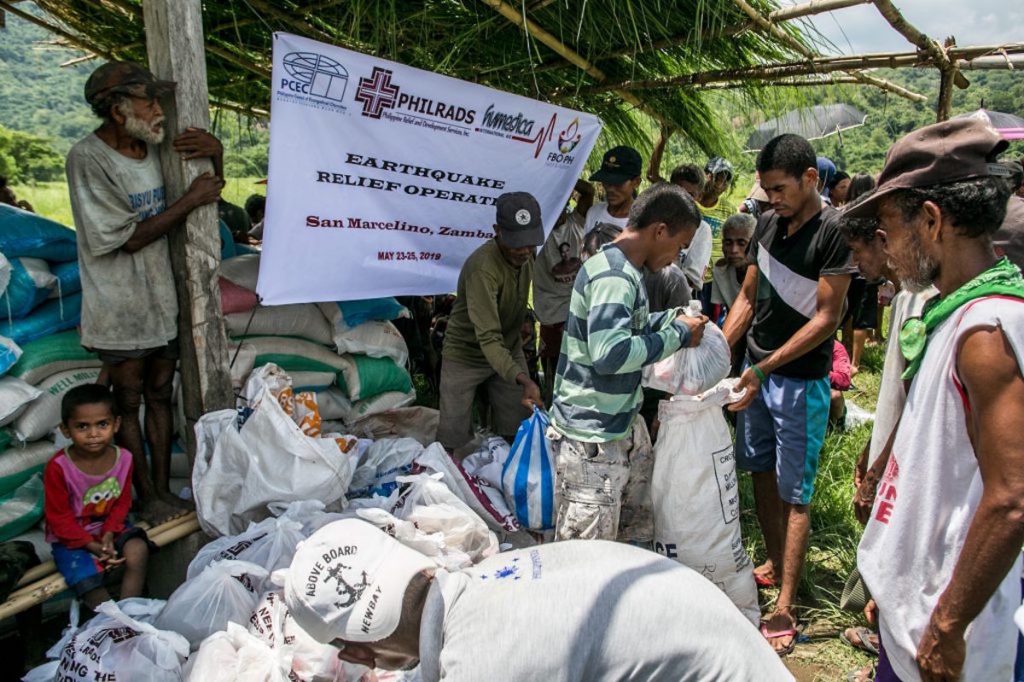Catholic church leaders in the Philippines called for a “dialogue of action” and urged the faithful to uphold the spirit of ecumenism to face the challenges brought about by the coronavirus pandemic.
Archbishop Angelito Lampon of Cotabato, chairman of the Commission on Ecumenical Affairs of the Catholic bishops’ conference, said the “coming together” of different churches to respond to the needs of the people is strengthened with “dialogues.”
In an online forum on Sept. 7, the prelate said cooperation and collaboration among Christian Churches during the global health crisis will benefit all people, especially the most vulnerable.
Archbishop Lampon called on the various religious groups in the country to engage in a “dialogue of action” that puts the people at the center of any humanitarian response.
He said the “act of coming together,” especially during the pandemic, will benefit every Filipino who is in great need “regardless of religious affiliation and belief.”
In a separate statement, the Ecumenical Bishops Forum welcomed the Philippine Catholic Church’s observance of the “Year of Ecumenism” as a venue for “constructive dialogue for peace and unity” among Christian churches.
Anglican Bishop Rex Reyes Jr., co-chairperson of the organization, said ecumenical bishops have agreed to “champion and further strengthen” inter-religious dialogues in the regional and local levels.
The prelate urged religious institutions in dioceses and local jurisdictions to conduct “intentional conversations” with other churches.
“These conversations strengthen levels of understanding and find common grounds for cooperation and collaboration… that promote ecumenism, unity, and dialogue,” he said.


During the online forum, church leaders cited “best practices of collaboration and cooperation” among different churches in times of disaster and humanitarian crisis.
Bishop Dindo Rañojo of the Philippine Independent Church said local Christian communities are now “harvesting the fruits of ecumenism.”
He said that in many parts of the country Catholic and Protestant dioceses pool their resources together to bring aid to victims of disasters.
In the northern Philippines, the Catholic Diocese of San Jose and the local Protestant jurisdiction have come together to deliver emergency relief packs to families affected by the coronavirus lockdown.
In Metro Manila, a local Catholic parish in the Diocese of Cubao extended aid to more than 300 Evangelical communities in the poor district of Payatas.
Bishop Rañojo said that in times of humanitarian crisis, churches must set aside theological differences and “let our social and pastoral works unite us for the people.”
He reminded people of different faiths that the “mission for the poor” has no religious boundaries.
The online forum, which was attended by about 250 people including about 20 bishops from different Christian churches, highlighted the role of the ecumenical community in this year’s observance of the Season of Creation.
Archbishop Antonio Ledesma, retired prelate of Cagayan de Oro and head of the Catholic bishops’ commission on mutual relations, said ecumenism and the “dialogue of action” are “vital in our response” to the climate crisis.
The prelate urged Christian churches to uphold the “perspective of unity” in leading the public in the fight against environmental degradation.
He said it is imperative for the ecumenical community to “continuously be transformed by the encounter with the other and by the mutual witness of faith.”
“We should commit ourselves to seek visible unity to elaborate together what it means in concrete steps, and to strive repeatedly toward our goal,” he said.


